‘I don’t hire anybody from the outside’: if law on free second degree in art will help Tatarstan
A week ago, Russia’s President Vladimir Putin signed a law on the right to a free second degree in art. The bill’s authors explained: mature people who have a university degree in another field often start creative jobs. Meanwhile, Tatarstan has been already tabling the problem of a shortage of art staff for many years, moreover, those who have a degree in art. As early as 2020, Minister of Culture Irada Ayupova said that more than 44% of culture workers in the republic didn’t have a related degree. Realnoe Vremya has figured out if the new law will help to fill the shortage of art staff in the republic and if art workers in general need a related degree.
“Talent isn’t only education, it is also God’s gift. And a lot of people realise this much later, not at the age of 17”
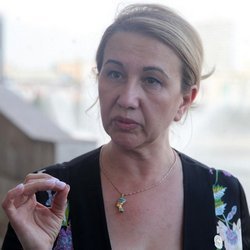
“We have a big number of people who work in the sector in related areas. For instance, people with a degree in humanities, philology, history. Talent isn’t only education, it is also God’s gift. And a lot of people realise this much later, not at the age of 17.”
The minister thinks that now these people have an opportunity for having a second degree free in the field that becomes a part of their life. Also, the republic’s culture minister paid attention to the fact that professional standards were actively introduced at the moment.
“Professional standards make having special education mandatory. And I totally agree with it because equalising professional competencies is a wrong path.”
To illustrate the importance of correspondence of knowledge and skills of a specialist to professional standards, Ayupova puts an example: “Nobody will see a doctor who doesn’t have a medical university degree.”
“There are a lot of artists, singers, painters who embarked on a profession consciously, they don’t have a related university degree. Now they have an opportunity to have this higher education in accordance with those professional standards that are in force in the sector today.”
“I don’t hire anybody simply from the outside, without a related degree”
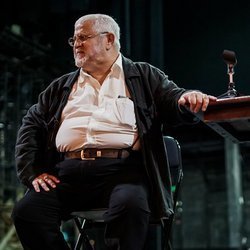
“The theatre is a profession, and it requires certain skills, it isn’t easier than, say, the profession of doctor or engineer. I don’t hire anybody simply from the outside, without a related degree.”
The specifics of art are that a person can graduate from an acting department but then he will need directing,” thinks the art manager of the theatre. Mr Slavutsky put an example of a ballet artist who finishes his career early enough, needs to get a second university degree to become a teacher, choreographer, he needs to learn. The director of the theatre also noted that direction also has a lot of people from related jobs.
“It is people who have the first degree in literature, choreography and so on. A lot of film directors come from operators, scriptwriters. It is art. It is impossible to finish the studies once and forever. An art person learns all the time, every day. It is like riding a bicycle, you fall if you stop pushing the pedals.”
Everything depends on a person. But it is easier to find a job at university
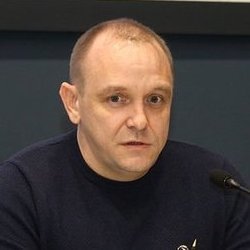
“Talking about an art profession, here there must be a special thing in the head that makes one creative, think, study, not necessarily at university, at some auditions perhaps. There is a lot of information on the Internet, there are video lessons. It is very convenient in the modern world, one can find the necessary solution precisely in lessons.”
The director said there were cases when he hired or cooperated with people who didn’t have a related university degree, directors, operators who found their creative outlook by trial and error. And he has also had to do business with those who had a degree but turned out absolutely indifferent. “Everything depends on a person,” Akberov claimed.
“The art profile doesn’t have general laws. One cannot say: ‘Paint this way, shoot this way, don’t shoot this way. The university can just show a path,” the director supposes.
He thinks that it is necessary to study at university, first of all, to find single-minded people, friends, people with a similar view who ask the same questions of how to perform some creative tasks. The director assumes that a university is a place where people can gather and discuss some of their experiments.
He also thinks that it is easier to find a job precisely at university.
“If you study on your own, it is a lottery to find a job, it is known if you will be invited to shoot or not. If you are at university, when talking in this circle people share information. The TV world is tiny, everybody knows each other. One can get acquainted at university and show off quite well.”
“What in general could I know about life, what I want from it at 16?”
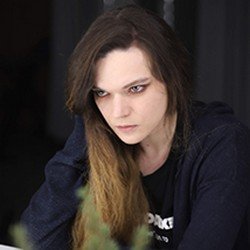
Dina Safina thinks that to study an art profession at university for five years is a waste of time, two years are enough to learn some basic skills, understand the foundation. After that, as practice shows, transformation, adjustment to one’s master, the way he thinks, sees begins, says Dina.
“You see a successful person with experience who obviously knows more than you, you start to trust him, it is inevitable. Also, the master chooses similar students in a group.”
Dina Safina thinks that it is useful to get a second university degree in art if there is no knowledge and experience at all in this sphere.
“The basics are necessary, but one can learn them in practice. I myself don’t see any sense in studying because I have already been in film directing for some six years. I gain experience in practice. Over the last year, for instance, I have dealt with The Citizens’ Theatre (a professional theatre with unprofessional actors), worked with Natalia Borenko and learnt a lot from her. With such knowledge, such experience, there is no point in studying — it is better to go and keep doing something.”
Dina Safina is convinced that in an art profession a person should have a symbiosis of knowledge, aspirations and talent. There is nothing to do in art without it: “I have seen people who studied for five years, simply wasted their time. You simply have a person with a diploma in front of you, while this person has neither understanding nor knowledge, he does some quite meddling things.”
However, it is hard to choose a profession for long at 16-17, this is why it is a good initiative to have the opportunity to go and get a second university degree in art a person found himself at a mature age.
“What in general could I know about life, what I want from it, what I want to do all my life at 16? After having a degree 10 years later I understood that I was going in the wrong direction. Fortunately, I dared to go back to square one. But somebody cannot do this, while a person should have choice.”
There can never be too much education
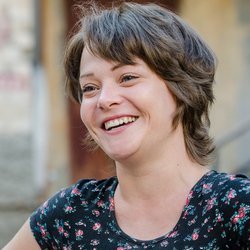
“It seems to me that it is a good tendency, this means life develops, we all change, there can never be too much additional education.
The director believes that the possibility of having a second university degree free in art will have a positive impact on the general development of culture.
“I see quite often people who already have a university degree embark on an art profession. I know a lot of people who had the first degree in engineering or something that has nothing to do with art. It is always good when the profession is enriched by people who have the basic academic degree, thus formidable intelligence.”
Regina Sattarova thinks that a high percentage of people who have already practised, done art, who have been thinking about getting a professional education for long but haven’t had money will get a second degree.
But at the same time, the director is convinced that the diploma as a document is a formality.
“For instance, in my art career, I have been asked for my diploma only once. I think the diploma decides nothing but education does, the fact of having education, creative thinking, theory — this changes a lot in life.” Regina has a rich experience of working with actors who have a degree in art and those who don’t:
“As a director, it is easier for me to work with professionals because first of all they know the trade. On the other hand, it is a double-edged sword because more experimental things can be done with people who don’t have professional education in acting.”